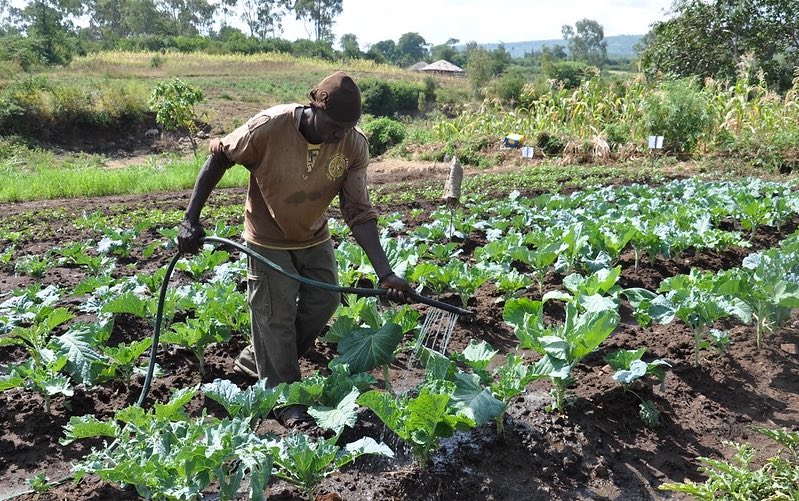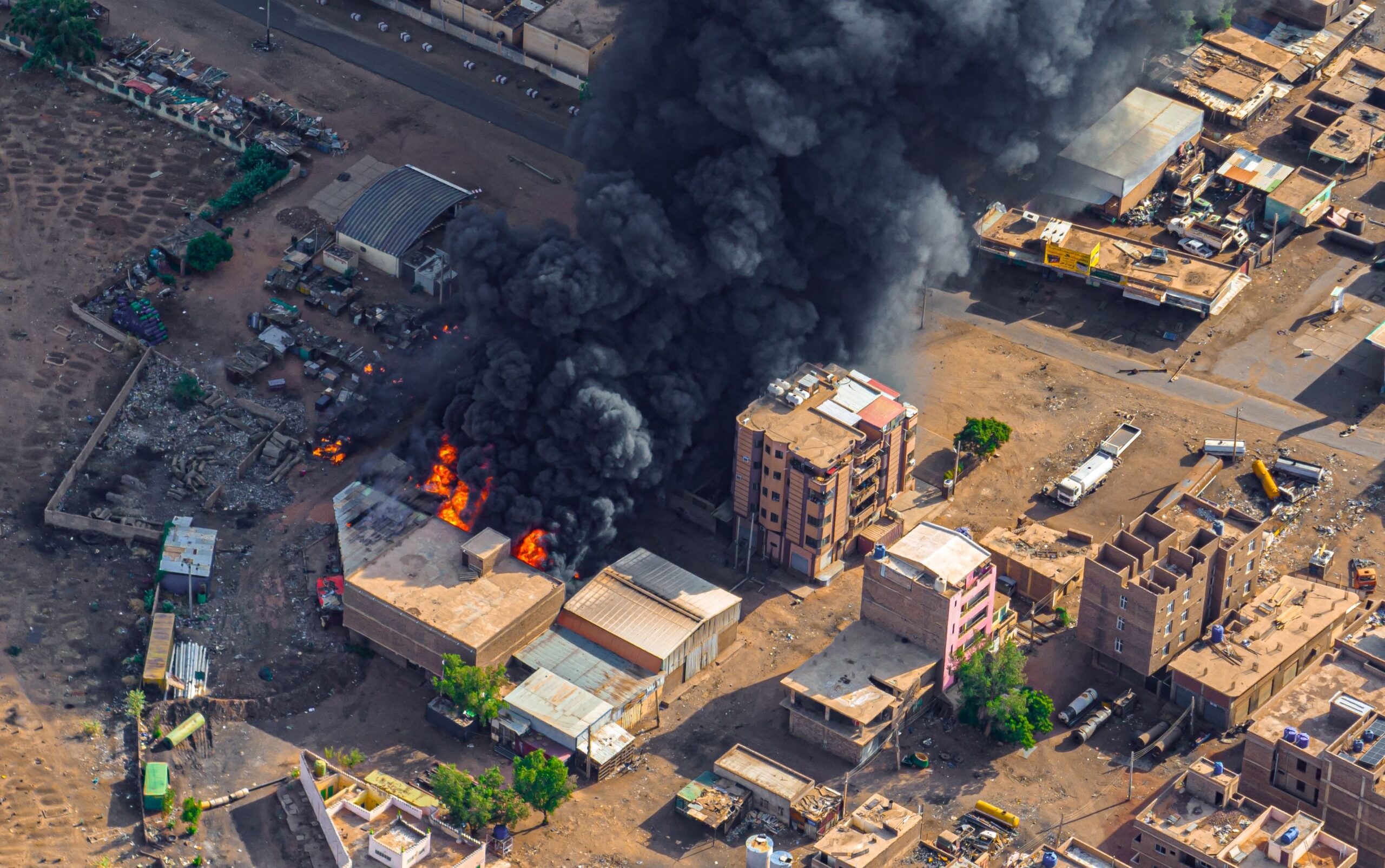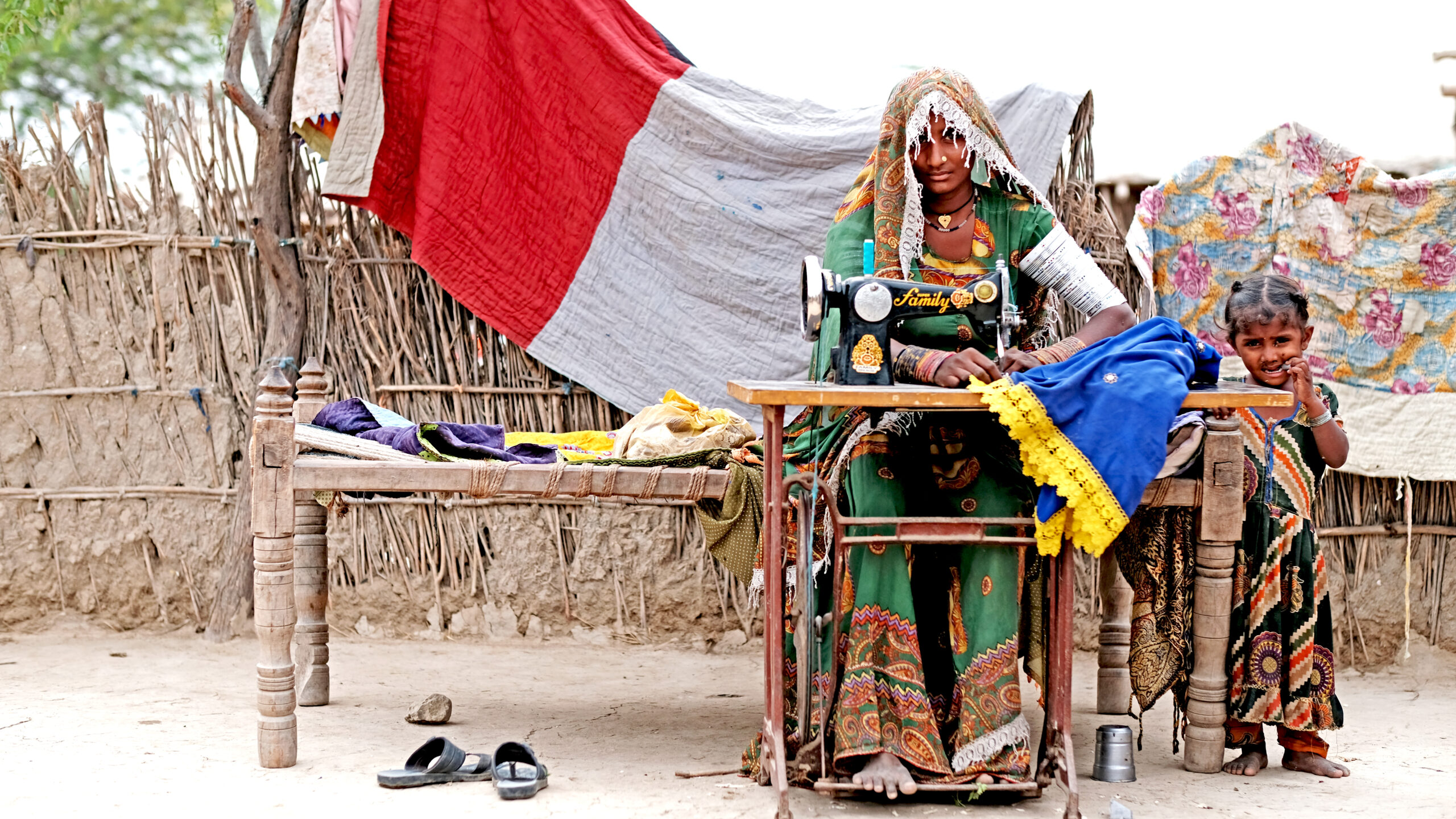Luz Marina Alvarė, IFPRI’s Head of Knowledge Management, and Soonho Kim, Web Portal Specialist, are actively participating in the G-8 International Conference on Open Data for Agriculture, which currently is taking place in Washington, DC. Tomorrow, IFPRI will host aD-8 Open Data for Agriculture G-8 Side Event geared toward sharing its own experience working with Open Data.
1. Can you briefly describe IFPRI’s policy toward Open Data and your team’s role in shaping this policy?
LMA: IFPRI has had a policy about publishing data since the first dataset was released in 1998. Later in 2006, IFPRI created a data policy to streamline the process of publishing data that was collected by researchers. During 2010, IFPRI updated its data policy to reflect changes that were happening worldwide with donors and governments in providing access to data that was result of research.
At the Open Access level, IFPRI produced a statement of commitment to advance Open Access. CGIAR is moving in the same direction, and so both organizations view its research products as “international public goods” and are working to open them as much as possible.
2. From your perspective, what are some important linkages between Open Data and food security? Can you provide any examples from your work?
SK: The Food Security Portal is a good case for showing how Open Data can help food security. It provides data and tools, and it also has policy dialogue (processes) and partner networks. In Central America, we work closely with the Central American Council (CAC), to make sure its members can use the data and tools to design the best policy.
3. What are some of the primary challenges to sharing data and knowledge on food security with partners around the world who need this information? And what are some effective strategies for ensuring this information reaches them in a timely fashion?
SK: The Food Security Portal collects data from various sources, including the World Bank, FAO, and others. Some data are easy to find and some are not so easy to find—that’s one challenge that we have. A second challenge is exporting the data in the right format for the end user. Sharing data is not enough for food security. Placing tools and data together makes it easier for the partners to see how they can utilize data more effectively.
LMA: For us, the primary challenge is to get the researchers’ data consolidated in a way that can be shared. The first challenge is to support researchers in preparing the data and its documentation, with standards and regulations. The second challenge is to share data in a usable form; data has to be in a form that is understandable by humans and at the same time machine readable (API). The last challenge is to have researchers and data curators supporting users in the use of data and files available, as questions arise. Overall, it requires a new generation of people with a new set of knowledge and skills for creating and curating data.
4. Can you describe how IFPRI and CGIAR are involved in the Open Data for Agriculture conference?
LMA: The CGIAR Consortium Office has been working vigorously over the past year trying to bring an Open Access approach and policy to all the participating centers. We recently had a Knowledge Management and Data meeting in Rome and the steps are to have our data and knowledge available in a way that can be easily shared with others. Specifically, IFPRI has been working with USDA staff to prepare our data for this event. We prepared several datasets, including a Bangladesh household survey, the Women’s Empowerment in Agriculture Index (WEAI), and others (see http://www.data.gov/food/page/food-apps-list-view ). We are highlighting the ASTI (Agricultural Science and Technology Indicators)datasets and ASTI data will also be showcased by FAO stat.
SK: For our booth, we have three monitors, four laptops, and two iPads, as well as a poster and a promotional flyer that describes IFPRI and the CGIAR. To provide a demonstration of the impact of the Food Security Portal we created a game, where the user will get ten questions, like if rice prices go up (the user has to determine) what kind of impact this will have in the rural area and in the urban area (of a particular region/country). We also have a “lightening talk” prepared for five minutes and twenty slides that will hopefully be exciting.
Following the G8 event, IFPRI will be hosting its own D8 Open Data for Agriculture side event that will highlight some of IFPRI’s own work with Open Data in agriculture and food security.
5. What messages would you like to see others take home from the G-8 Open Data for Agriculture Conference and IFPRI’s follow-up D-8 event?
LMA: That everyone working in the area of development, governments, and organizations are aware of the availability of IFPRI’s research data so it can contribute to the integration of other data available to help developing countries make informed decisions.
SK: There are a lot of challenges to working with Open Data for organizations. So we cannot say to individuals, “Open your data.” When talking to an organization it involves many individuals. So the efforts of organizations like the World Bank, FAO, IFPRI, and various government agencies need to be built upon. For us, we need to not only open up our own data, but help other organizations do it. So that’s my message: organizations can open up their data, but they need to work together.
6. Do you believe that we are on the verge of a major shift in how we use data and statistics?
LMA: I do agree that we are on the verge of a major shift, but it requires a change in the way we have been working. The data collection is done using more efficient systems and is curated and placed in repositories that work with standards to make it more available. Data stays with the creators and curators, and the web is the place where data are rendered and displayed in different ways. The shift is toward lowering the barriers so everyone has access to the data.
SK: I think the G8 side event (a.k.a. “D8”) at IFPRI on May 1st is the starting point. And I think we need to have an Open Data event every year to promote our work and also learn from others. We need to not only promote our own data, but also push to make sure our data have an impact. For example, make an application or some kind of product for using Open Data—so I suggest IFPRI hosts a “hackathon” where IFPRI provides a list of challenges and data available along with other Open Data, and invites a group of data scientists to help work on the issue. Then, we work together to make some kind of application that uses our data in order to achieve impact.
Luz Marina Alvarė, IFPRI’s Head of Knowledge Management, and Soonho Kim, Web Portal Specialist, are actively participating in the G-8 International Conference on Open Data for Agriculture, which currently is taking place in Washington, DC. Tomorrow, IFPRI will host aD-8 Open Data for Agriculture G-8 Side Event geared toward sharing its own experience working with Open Data.
1. Can you briefly describe IFPRI’s policy toward Open Data and your team’s role in shaping this policy?
LMA: IFPRI has had a policy about publishing data since the first dataset was released in 1998. Later in 2006, IFPRI created a data policy to streamline the process of publishing data that was collected by researchers. During 2010, IFPRI updated its data policy to reflect changes that were happening worldwide with donors and governments in providing access to data that was result of research.
At the Open Access level, IFPRI produced a statement of commitment to advance Open Access. CGIAR is moving in the same direction, and so both organizations view its research products as “international public goods” and are working to open them as much as possible.
2. From your perspective, what are some important linkages between Open Data and food security? Can you provide any examples from your work?
SK: The Food Security Portal is a good case for showing how Open Data can help food security. It provides data and tools, and it also has policy dialogue (processes) and partner networks. In Central America, we work closely with the Central American Council (CAC), to make sure its members can use the data and tools to design the best policy.
3. What are some of the primary challenges to sharing data and knowledge on food security with partners around the world who need this information? And what are some effective strategies for ensuring this information reaches them in a timely fashion?
SK: The Food Security Portal collects data from various sources, including the World Bank, FAO, and others. Some data are easy to find and some are not so easy to find—that’s one challenge that we have. A second challenge is exporting the data in the right format for the end user. Sharing data is not enough for food security. Placing tools and data together makes it easier for the partners to see how they can utilize data more effectively.
LMA: For us, the primary challenge is to get the researchers’ data consolidated in a way that can be shared. The first challenge is to support researchers in preparing the data and its documentation, with standards and regulations. The second challenge is to share data in a usable form; data has to be in a form that is understandable by humans and at the same time machine readable (API). The last challenge is to have researchers and data curators supporting users in the use of data and files available, as questions arise. Overall, it requires a new generation of people with a new set of knowledge and skills for creating and curating data.
4. Can you describe how IFPRI and CGIAR are involved in the Open Data for Agriculture conference?
LMA: The CGIAR Consortium Office has been working vigorously over the past year trying to bring an Open Access approach and policy to all the participating centers. We recently had a Knowledge Management and Data meeting in Rome and the steps are to have our data and knowledge available in a way that can be easily shared with others. Specifically, IFPRI has been working with USDA staff to prepare our data for this event. We prepared several datasets, including a Bangladesh household survey, the Women’s Empowerment in Agriculture Index (WEAI), and others (see http://www.data.gov/food/page/food-apps-list-view ). We are highlighting the ASTI (Agricultural Science and Technology Indicators)datasets and ASTI data will also be showcased by FAO stat.
SK: For our booth, we have three monitors, four laptops, and two iPads, as well as a poster and a promotional flyer that describes IFPRI and the CGIAR. To provide a demonstration of the impact of the Food Security Portal we created a game, where the user will get ten questions, like if rice prices go up (the user has to determine) what kind of impact this will have in the rural area and in the urban area (of a particular region/country). We also have a “lightening talk” prepared for five minutes and twenty slides that will hopefully be exciting.
Following the G8 event, IFPRI will be hosting its own D8 Open Data for Agriculture side event that will highlight some of IFPRI’s own work with Open Data in agriculture and food security.
5. What messages would you like to see others take home from the G-8 Open Data for Agriculture Conference and IFPRI’s follow-up D-8 event?
LMA: That everyone working in the area of development, governments, and organizations are aware of the availability of IFPRI’s research data so it can contribute to the integration of other data available to help developing countries make informed decisions.
SK: There are a lot of challenges to working with Open Data for organizations. So we cannot say to individuals, “Open your data.” When talking to an organization it involves many individuals. So the efforts of organizations like the World Bank, FAO, IFPRI, and various government agencies need to be built upon. For us, we need to not only open up our own data, but help other organizations do it. So that’s my message: organizations can open up their data, but they need to work together.
6. Do you believe that we are on the verge of a major shift in how we use data and statistics?
LMA: I do agree that we are on the verge of a major shift, but it requires a change in the way we have been working. The data collection is done using more efficient systems and is curated and placed in repositories that work with standards to make it more available. Data stays with the creators and curators, and the web is the place where data are rendered and displayed in different ways. The shift is toward lowering the barriers so everyone has access to the data.
SK: I think the G8 side event (a.k.a. “D8”) at IFPRI on May 1st is the starting point. And I think we need to have an Open Data event every year to promote our work and also learn from others. We need to not only promote our own data, but also push to make sure our data have an impact. For example, make an application or some kind of product for using Open Data—so I suggest IFPRI hosts a “hackathon” where IFPRI provides a list of challenges and data available along with other Open Data, and invites a group of data scientists to help work on the issue. Then, we work together to make some kind of application that uses our data in order to achieve impact.







